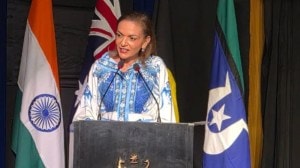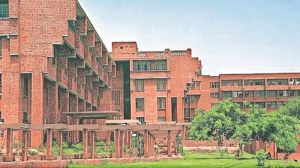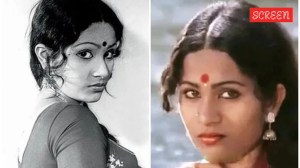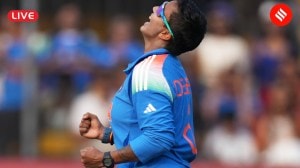He gave his life to build up resistance against militants, gets Shaurya Chakra
Guwahati, Aug 17: When Umesh Rabha, first called upon his fellow villagers at Thamna Bazar, a remote weekly haat in the northern region of...

Guwahati, Aug 17: When Umesh Rabha, first called upon his fellow villagers at Thamna Bazar, a remote weekly haat in the northern region of Lower Assam’s Nalbari district to refuse to pay money to the militants, the villagers thought he had gone mad. How could the unarmed villagers say no to the armed militants, they thought.
But Rabha was not a person to give up hope so easily. He had a Border Security Force background, where he had served for ten years before returning to his native villager to set up a small shop. And he went ahead mobilising the people.That was in December, 1998, when the ULFA and Bodo rebels had slammed a systematic extortion chart on the petty traders of Thamna Bazar. They had fixed different rates for different types of trades, beginning with Rs 1000 for the bigger grocery store to Rs 50 from the boy who charged rupee one for filling air in a bicycle tube.
Rabha went from house to house, urging the people to get united a come out to say a big No. This effort culminated in a peace meeting in the haat on December 26, 1998, where about 500 people turned up, not a small figure going by the size of the haat itself. Umesh Rabha himself presided over the meeting, and made other prominent villagers and shop-keepers to speak out against the militants."We will not pay a single paise," the villagers resolved, with the message being sent out to the extortionist groups by way of hand-written posters, for which Rabha himself paid from his pocket.
Five days later, Rabha took out a bicycle procession from Thamna Bazar, which made a round of six to seven neighbouring villages, with about 2,000 men, both young and old joining him. The message spread like wild fire through the Nalbari countryside, as also into the villages of adjoining Barpeta district.
And Rabha became an instant hero. He began getting invitations from the neighbouring villages to address anti-militancy meetings, as also to lead cycle processions, and within the next one month, reports of at least half a dozen such peace rallies began to pour into the local media in Guwahati, initially getting carried in the inside pages.
Encouraged by the response, he also set up a Santrash Virodhi Gana Manch, with similar bodies spontaneously propping up in the neighbouring villages too. The militants on their part got wary, and also enraged at what Rabha was beginning to do.
Identifying Rabha as a potential threat to their extortion spree, the militants first issued a threat to him, but he refused to budge an inch. The Nalbari district administration offered him personal security. "But Rabha refused to take it, saying that would unnecessarily project him as an officially sponsored person," recalled Apurba Jivan Barua, the then Superintendent of Police, Nalbari.By the end of January, 1999, two armed militants arrived in Thamna Bazar under the cover of darkness, and made an attempt on Rabha’s life. But he had a miraculous escape. Six months later, in July, they shot at him again. This time he sustained two bullet injuries, was removed to the Guwahati Medical College Hospital, and his life was saved.
On recovery, Rabha’s zeal shot up manifold, with more young people from the area coming out to support him. "The local boys even started providing an unarmed cover to Rabha, in order to save him from another attack," Barua, now SP of Dhubri district recalled.
And the resistance movement began to spread across the length and breadth of Assam. Rabha’s message was so well picked up by the people in even the far-away districts, that in some places the people even started catching hold of the militants and handing them over to the security forces.
"In 1999, as many as 26 militants were caught by the people, beaten up and then handed over to the security forces," said Khagen Sharma, DIG (Special Branch) of the Assam Police. And in the current year, as many a seven militant youths have been done to death by the common man, Sharma said, pointing out that this was a never-before phenomenon in insurgency-infested Assam.But luck soon began to run out for Umesh Rabha. On November 13, 1999, some 20 militants, all dressed in army uniform, arrived in Thamna Bazar, raided his house and shot him dead. "I have lost my husband, but I am proud that his life has changed the very mood of the people against militancy," said Purnima Rabha, his widow, who now runs the cloth store her husband had set up in Thamna Bazar.
Rabha’s sacrifice has been finally recognised by the government with the conferment of a Shaurya Chakra on him on the occasion of the Independence Day this year. What a series of psychological campaigns by the government and the army could not do in ten years since the ULFA was banned in 1990, one courageous man in an interior village could do it: motivate the common man to withdraw support to the militants.



- 01
- 02
- 03
- 04
- 05




























